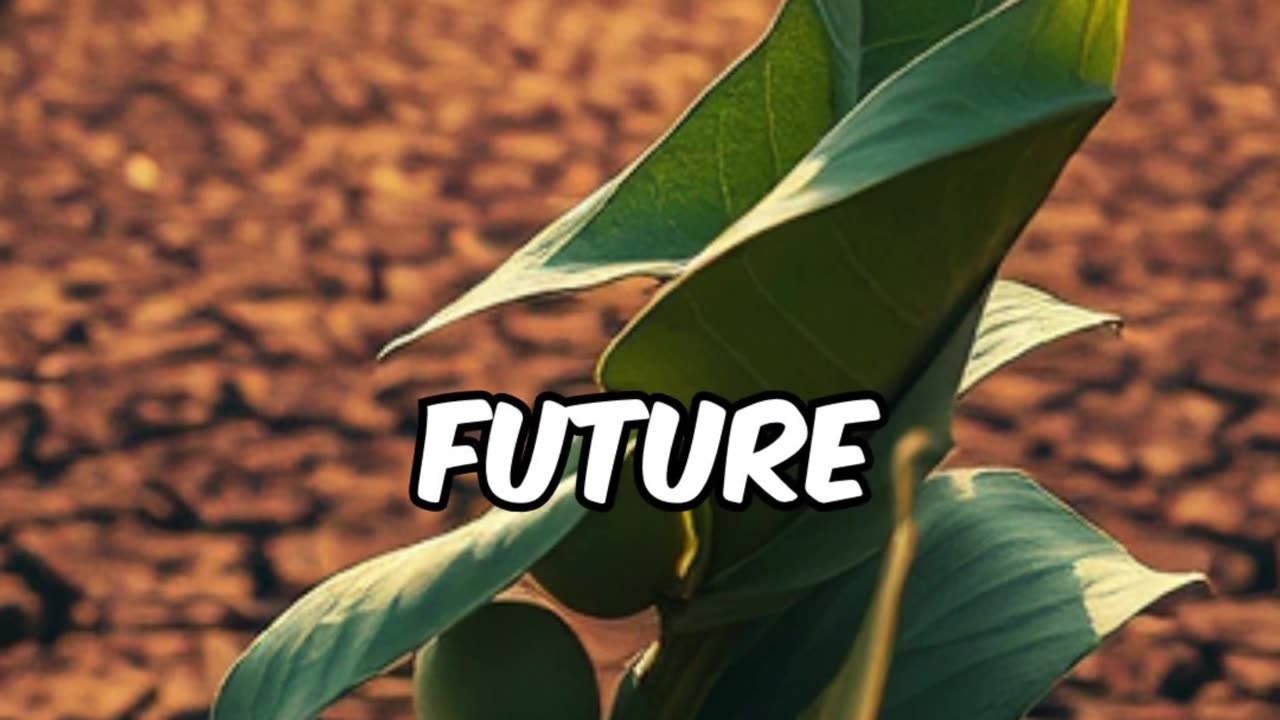Premium Only Content

The Hidden Cost of Your Coffee Habit #Coffee #Sustainability #Eco
The Hidden Cost of Your Coffee Habit
Introduction: What’s Really in Your Cup of Coffee?
Millions of people start their day with a cup of coffee, but have you ever stopped to think about what’s behind your morning brew? From unsustainable farming practices to low wages for coffee farmers, your daily coffee habit comes with hidden costs—ones that impact the environment, human rights, and even your health.
In this video, we’ll dive into the shocking truths about coffee production, the ethical and environmental issues behind the industry, and how you can enjoy your coffee without contributing to global harm.
#CoffeeIndustry #EthicalCoffee #FairTrade #SustainableLiving #CoffeeLovers
⸻
1. The Global Coffee Industry: A Billion-Dollar Business
Coffee isn’t just a drink—it’s a $100 billion industry. But while major coffee corporations make billions, the farmers who grow the beans often struggle to survive.
Who Really Profits from Your Coffee?
🔹 Big coffee brands control the market and keep prices low for farmers.
🔹 Farmers earn just cents per cup, while corporations make huge profits.
🔹 Fair Trade and direct trade coffee offer better wages—but not all brands follow ethical sourcing.
By understanding where your coffee comes from, you can make informed choices that support ethical farming instead of exploitation.
#FairTradeCoffee #SupportFarmers #EthicalSourcing #CoffeeCulture #KnowYourCoffee
⸻
2. The Environmental Impact of Coffee Production
Your coffee habit doesn’t just affect people—it also takes a toll on the planet. The demand for coffee has led to deforestation, excessive water use, and pollution.
How Coffee Farming Harms the Environment:
🌳 Deforestation – Rainforests are being cleared to make room for coffee plantations.
💧 Water Waste – It takes 140 liters of water to produce one cup of coffee.
🌿 Pesticides & Chemicals – Many coffee farms use harmful chemicals that damage ecosystems.
Choosing shade-grown, organic, or Rainforest Alliance-certified coffee helps minimize environmental harm.
#SustainableCoffee #EcoFriendlyLiving #SaveTheRainforest #OrganicCoffee #ClimateChange
⸻
3. The Hidden Labor Crisis: Are Coffee Farmers Exploited?
Coffee is one of the most labor-intensive crops, but the people who grow it rarely earn a living wage.
The Reality for Coffee Farmers:
🛑 Many earn less than $3 per day, keeping them in poverty.
🛑 Child labor is still a major problem in coffee-producing countries.
🛑 Climate change is making coffee farming even harder with unpredictable weather patterns.
Buying Fair Trade coffee or coffee from brands that support ethical sourcing ensures farmers are paid fairly and treated with dignity.
#CoffeeEthics #SupportFairTrade #EndExploitation #FarmersRights #ConsciousConsumer
⸻
4. The Plastic Problem: Coffee Cups & Waste
Love your daily to-go coffee? You’re not alone—but disposable coffee cups are a huge waste problem.
The Coffee Waste Crisis:
☕ 500 billion disposable cups are used worldwide each year.
♻ Most cups aren’t recyclable due to plastic linings.
🚯 Coffee pods add tons of plastic waste to landfills.
How to Reduce Coffee Waste:
✅ Use a reusable coffee cup to cut down on disposable waste.
✅ Choose compostable or recyclable coffee pods if you use a machine.
✅ Make coffee at home with sustainable brewing methods.
#DitchTheCup #PlasticFreeCoffee #GoGreen #ZeroWaste #ReusableCup
⸻
5. The Dark Side of Instant & Cheap Coffee
Instant coffee and cheap supermarket brands may seem convenient, but they often come with serious ethical and quality concerns.
Why Cheap Coffee is a Problem:
❌ Low-quality beans are often used, affecting flavor and nutrition.
❌ Poor working conditions for farmers and factory workers.
❌ Chemical processing strips coffee of its natural health benefits.
If you want better quality and ethical sourcing, consider buying from local roasters, specialty coffee shops, or brands with sustainability certifications.
#InstantCoffee #CheapCoffee #BetterBeans #QualityOverQuantity #CoffeeSnob
⸻
6. Is Coffee Actually Healthy? The Truth About Caffeine
Coffee has been praised for its health benefits, but too much caffeine can have negative effects.
Coffee’s Benefits:
✔ Rich in antioxidants that fight inflammation.
✔ Can improve brain function and alertness.
✔ May reduce the risk of Alzheimer’s and Parkinson’s.
Coffee’s Downsides:
⚠ Too much caffeine can cause anxiety, jitters, and sleep issues.
⚠ High-acid coffee may lead to stomach problems.
⚠ Some commercial coffee brands have mold and mycotoxins due to poor processing.
Drinking organic, high-quality coffee in moderation helps maximize benefits while minimizing risks.
#CoffeeAndHealth #CaffeineAddict #HealthyLiving #DrinkSmart #Wellness
⸻
7. Sustainable Coffee Choices: How to Drink Responsibly
Want to enjoy your coffee without harming people or the planet? Here’s how to make sustainable choices:
How to Choose Ethical Coffee:
✅ Look for Fair Trade & Rainforest Alliance certifications.
✅ Support local coffee roasters that prioritize sustainability.
✅ Use reusable cups and coffee filters to cut waste.
✅ Choose shade-grown or organic coffee to support eco-friendly farms.
Every cup of coffee you drink sends a message to the industry—make yours count.
#ConsciousConsumerism #DrinkBetterCoffee #FairTradeMatters #EcoFriendlyLife #SustainableBrewing
⸻
8. The Future of Coffee: Will Climate Change Kill Coffee?
Climate change is already threatening coffee production—by 2050, up to 50% of current coffee-growing land could be unusable.
How Climate Change Affects Coffee:
🌡 Rising temperatures make coffee harder to grow.
🐜 Pests & diseases are spreading to coffee farms.
💸 Farmers are losing income, forcing them out of business.
Without action, coffee could become a luxury item. Supporting climate-conscious coffee brands helps keep coffee farming alive for future generations.
#SaveCoffee #ClimateCrisis #SustainableAgriculture #FutureOfCoffee #ActOnClimate
⸻
Conclusion: What Can You Do?
Your daily coffee habit doesn’t have to harm people or the planet. By making smarter choices, you can enjoy your favorite drink guilt-free.
Simple Ways to Make a Difference:
💚 Buy Fair Trade or ethically sourced coffee.
🌍 Use a reusable coffee cup and avoid single-use plastics.
🚀 Support sustainable coffee brands that prioritize the environment.
💡 Educate others on the hidden costs of coffee production.
Are you ready to rethink your coffee habit? Tell us in the comments how you plan to drink coffee more responsibly!
👉 LIKE, COMMENT & SUBSCRIBE for more eye-opening content!
#CoffeeSustainability #EthicalConsumption #DrinkResponsibly #SupportSmallFarmers #CoffeeAwareness
-
 LIVE
LIVE
ADH Gaming
3 hours agoWarzone Kar98 Iron sight Quick scopes
25 watching -
 LIVE
LIVE
Adam Does Movies
11 hours ago $1.37 earnedAll The Big Movie Announcements From CinemaCon 2025- LIVE!
224 watching -
 1:07:30
1:07:30
Josh Pate's College Football Show
4 hours ago $1.81 earnedBig CFB Changes Coming | USC + Texas + Alabama In 2025 | Truth About Officiating | I Am Engaged
23.2K1 -
 4:43:40
4:43:40
Biscotti-B23
7 hours ago $0.23 earned🔴 LIVE VIEWERS VS MEMBERS BEEF 🔥 FINDING A NEW MAIN ⚔ BLEACH REBIRTH OF SOULS
9.08K -
 3:21:55
3:21:55
DTDUBtv
4 hours agoOUTLAST TRIALS WITH SARAHSLOTH17
12.7K -
 LIVE
LIVE
Major League Fishing
5 days agoLIVE! - MLF Bass Pro Tour: REDCREST - Day 4
8,457 watching -
 DVR
DVR
EricJohnPizzaArtist
3 hours agoAwesome Sauce PIZZA ART LIVE Ep. #42: It’s Cartman!
34.3K4 -
![[Vtuber] Black Ops 6 warzone and mp! Ep.2](https://1a-1791.com/video/fww1/68/s8/1/z/v/X/z/zvXzy.0kob-small-Vtuber-Black-Ops-6-warzone-.jpg) LIVE
LIVE
Ryker SteelVT
4 hours ago[Vtuber] Black Ops 6 warzone and mp! Ep.2
16 watching -
 9:53
9:53
China Uncensored
7 hours agoThe UK Just Screwed Itself BADLY
21.7K11 -
 LIVE
LIVE
Deaf Gamer Girl
3 hours agoFortnite then Schedule 1 - DGG play !
58 watching